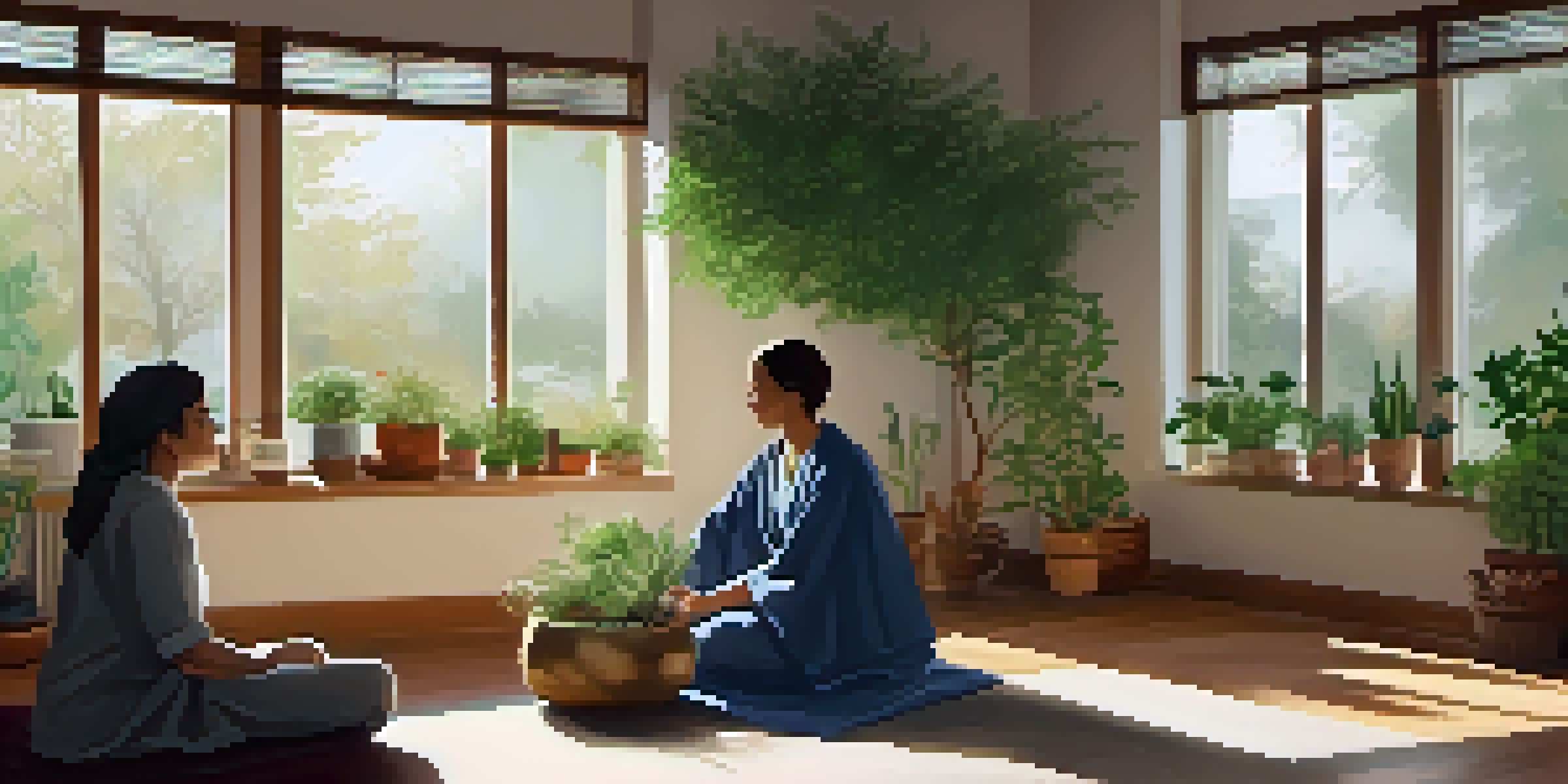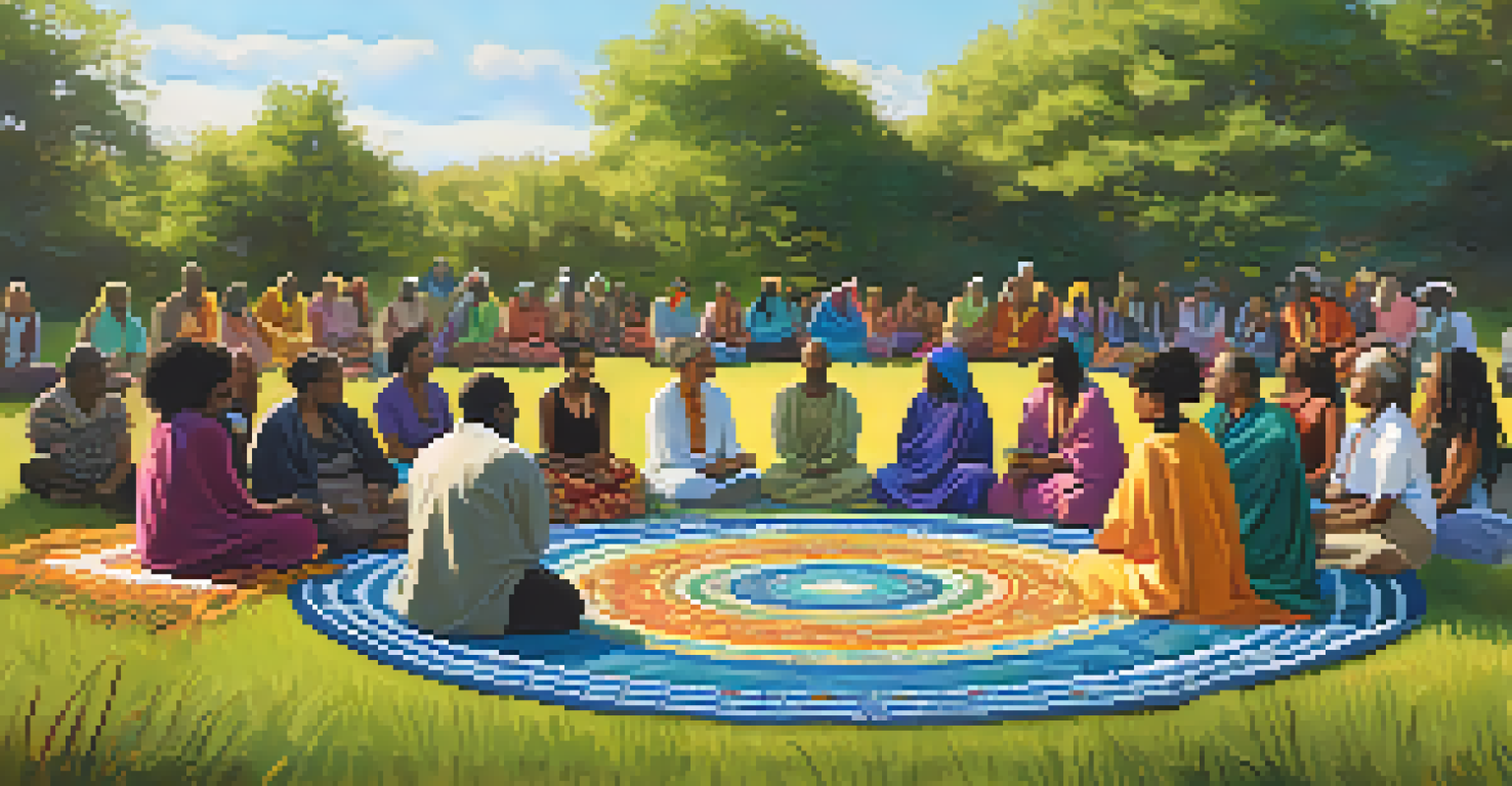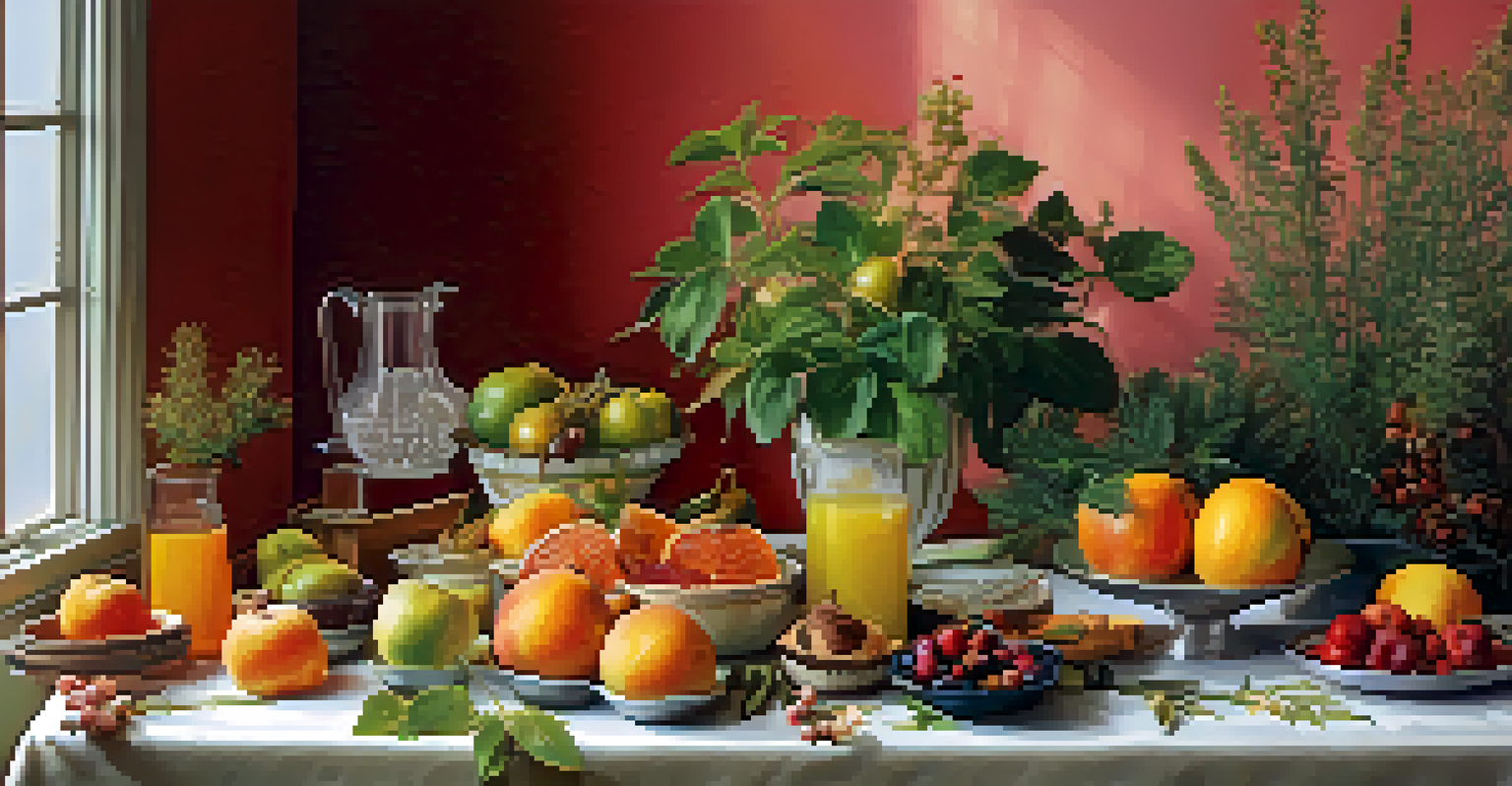Cultural Rituals and Their Influence on Naturopathy

Understanding Naturopathy: A Holistic Approach
Naturopathy is a holistic healing system that emphasizes natural remedies and the body’s inherent ability to heal. It integrates various methods, including herbal medicine, nutrition, and lifestyle changes, to promote overall wellness. This approach is deeply influenced by cultural practices and rituals that vary around the world, adapting to the unique beliefs and lifestyles of different communities.
The greatest medicine of all is to teach people how not to need it.
For instance, traditional healing practices in Indigenous cultures often involve rituals that connect individuals to their ancestors and the natural world. These rituals serve not only as a means of healing but also as a way to foster a sense of belonging and identity within the community. By understanding these cultural foundations, practitioners can better tailor their naturopathic methods to meet the needs of their patients.
Ultimately, the intersection of naturopathy and cultural rituals emphasizes the importance of viewing health through a broad lens, considering not just the physical body but also mental, emotional, and spiritual aspects.
Cultural Rituals: The Heart of Healing Practices
Cultural rituals play a significant role in shaping the healing practices within naturopathy. These rituals often bring together community members, reinforcing social bonds while providing emotional support during times of illness. For example, rituals such as smudging in Indigenous cultures involve the burning of sacred herbs to cleanse a space and promote healing, enhancing both the physical and spiritual well-being of individuals.

Moreover, many cultural rituals incorporate specific music, dance, or art that serves as a form of expression and healing. These elements can create a powerful atmosphere for patients, helping them feel more connected to their heritage and the healing process. This connection can significantly enhance the efficacy of naturopathic treatments, leading to better health outcomes.
Naturopathy Embraces Holistic Healing
Naturopathy integrates natural remedies and cultural rituals to address physical, mental, and spiritual health.
By recognizing and integrating these rituals into naturopathic practices, practitioners can create a more personalized and effective healing experience for their clients.
The Role of Traditional Medicine in Naturopathy
Traditional medicine is often intertwined with cultural rituals, providing a wealth of knowledge that informs naturopathic practices. Many cultures have their own systems of medicine that have been passed down through generations, encompassing herbal remedies, dietary practices, and lifestyle adjustments. Naturopaths often draw from these rich traditions to enhance their practice and offer a broader range of healing options.
Healing is a matter of time, but it is sometimes also a matter of opportunity.
For instance, Traditional Chinese Medicine (TCM) incorporates concepts like Qi (life energy) and the balance of Yin and Yang, influencing how naturopaths approach health and wellness. By integrating these ancient practices, practitioners can offer a more comprehensive understanding of health that resonates with patients from diverse backgrounds.
This fusion of traditional medicine and naturopathy not only validates cultural practices but also enriches the therapeutic experience, making it more relevant and effective for patients.
Rituals of Mindfulness and Their Healing Effects
Mindfulness rituals, prevalent in various cultures, have gained recognition within naturopathy for their profound healing effects. Practices such as meditation, yoga, and deep-breathing exercises encourage individuals to connect with their inner selves and promote mental well-being. These rituals not only reduce stress but also enhance the overall effectiveness of naturopathic treatments.
For example, a naturopath might incorporate mindfulness techniques into a patient’s treatment plan, encouraging them to engage in daily meditation or mindful eating practices. This holistic approach addresses both the mind and body, fostering a deeper sense of awareness and control over one’s health.
Cultural Rituals Enhance Healing
Community and cultural rituals foster emotional support and connection, improving the effectiveness of naturopathic treatments.
By incorporating mindfulness rituals into naturopathic care, practitioners can help patients cultivate resilience, leading to improved health outcomes and a more fulfilling healing journey.
Seasonal Rituals and Their Influence on Health
Many cultures celebrate seasonal rituals that reflect the changing cycles of nature, which can significantly influence health practices in naturopathy. For instance, spring cleaning is not just about tidying up; it often symbolizes renewal and can inspire individuals to cleanse their diets and lifestyles. Such seasonal rituals encourage people to align their health practices with the rhythms of nature, promoting a sense of harmony.
These rituals often include specific foods and herbs that are believed to be beneficial during certain times of the year. For example, consuming warm soups and herbal teas during winter can boost immunity and promote well-being. By understanding and integrating these seasonal practices, naturopaths can help guide their patients in making health choices that are in tune with nature.
The cyclical nature of these rituals not only enhances physical health but also fosters a deeper connection to the environment and the changing seasons.
Community Rituals: Building Connections in Healing
In many cultures, community rituals play a vital role in the healing process, creating a supportive environment for individuals facing health challenges. Group gatherings, prayer circles, or communal healing ceremonies can provide emotional support and foster a sense of belonging. This communal aspect is essential in naturopathy, as it recognizes that healing often occurs within a social context.
For example, in some cultures, healing circles allow individuals to share their experiences and support one another, reinforcing the idea that no one is alone in their journey toward health. These connections can enhance the efficacy of naturopathic treatments, as patients feel more empowered and supported.
Future Merges Tradition and Innovation
The evolution of naturopathy combines traditional practices with modern health approaches to create a dynamic healing environment.
By integrating community rituals into their practice, naturopaths can help cultivate a healing environment that emphasizes connection, compassion, and shared experiences.
The Future of Naturopathy: Merging Tradition and Innovation
As the field of naturopathy continues to evolve, there is an increasing emphasis on merging traditional cultural rituals with modern health practices. This synthesis not only honors the wisdom of ancient healing traditions but also allows for innovative approaches that address contemporary health challenges. By blending these elements, naturopaths can create a more dynamic and responsive healing practice.
For instance, the integration of technology in tracking health goals, paired with traditional dietary rituals, can offer patients a comprehensive approach to their well-being. This combination brings together the best of both worlds, ensuring that patients receive care that is both relevant and rooted in cultural significance.

Looking ahead, the future of naturopathy lies in its ability to adapt and incorporate diverse cultural rituals, creating a healing landscape that is rich, inclusive, and effective for all.